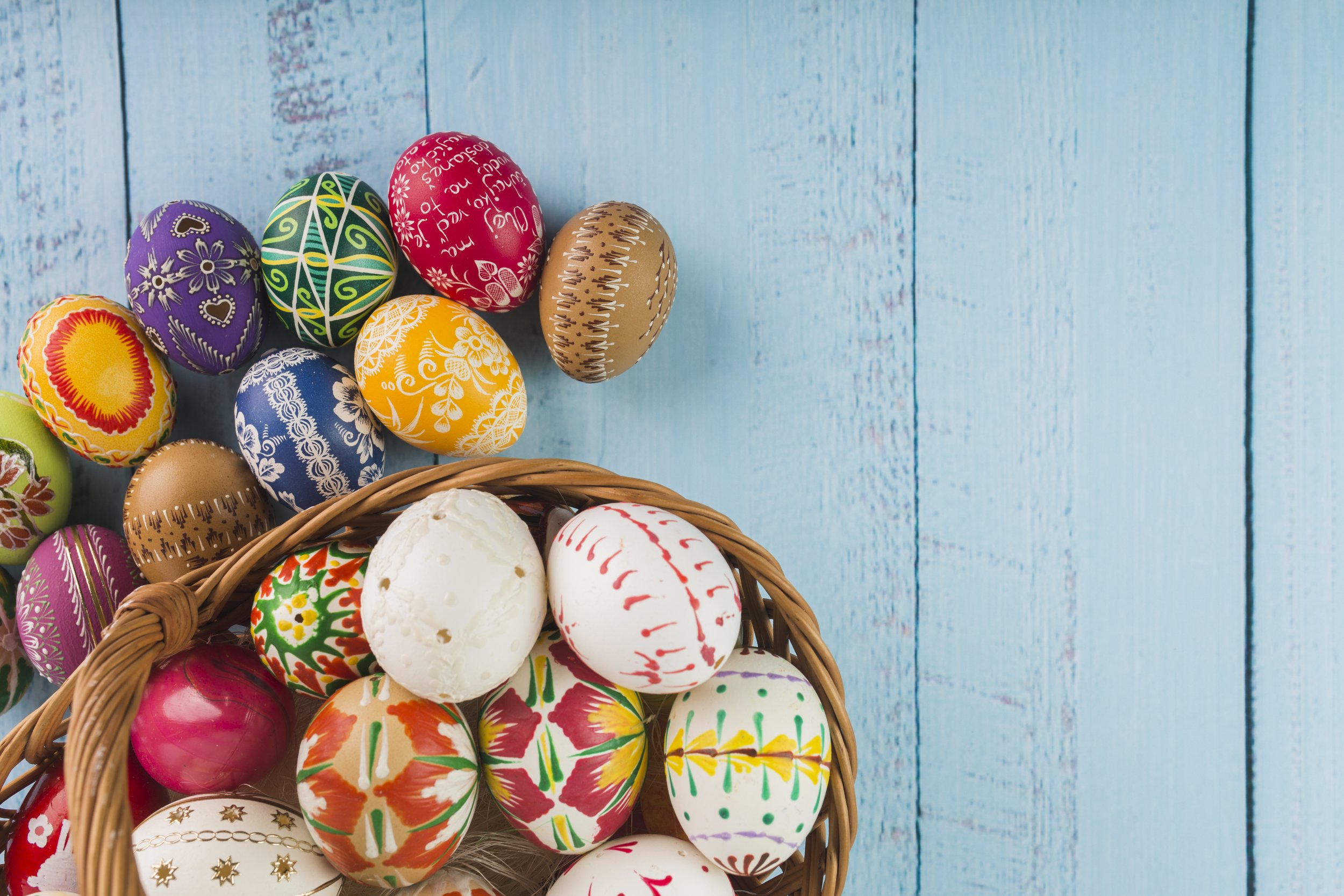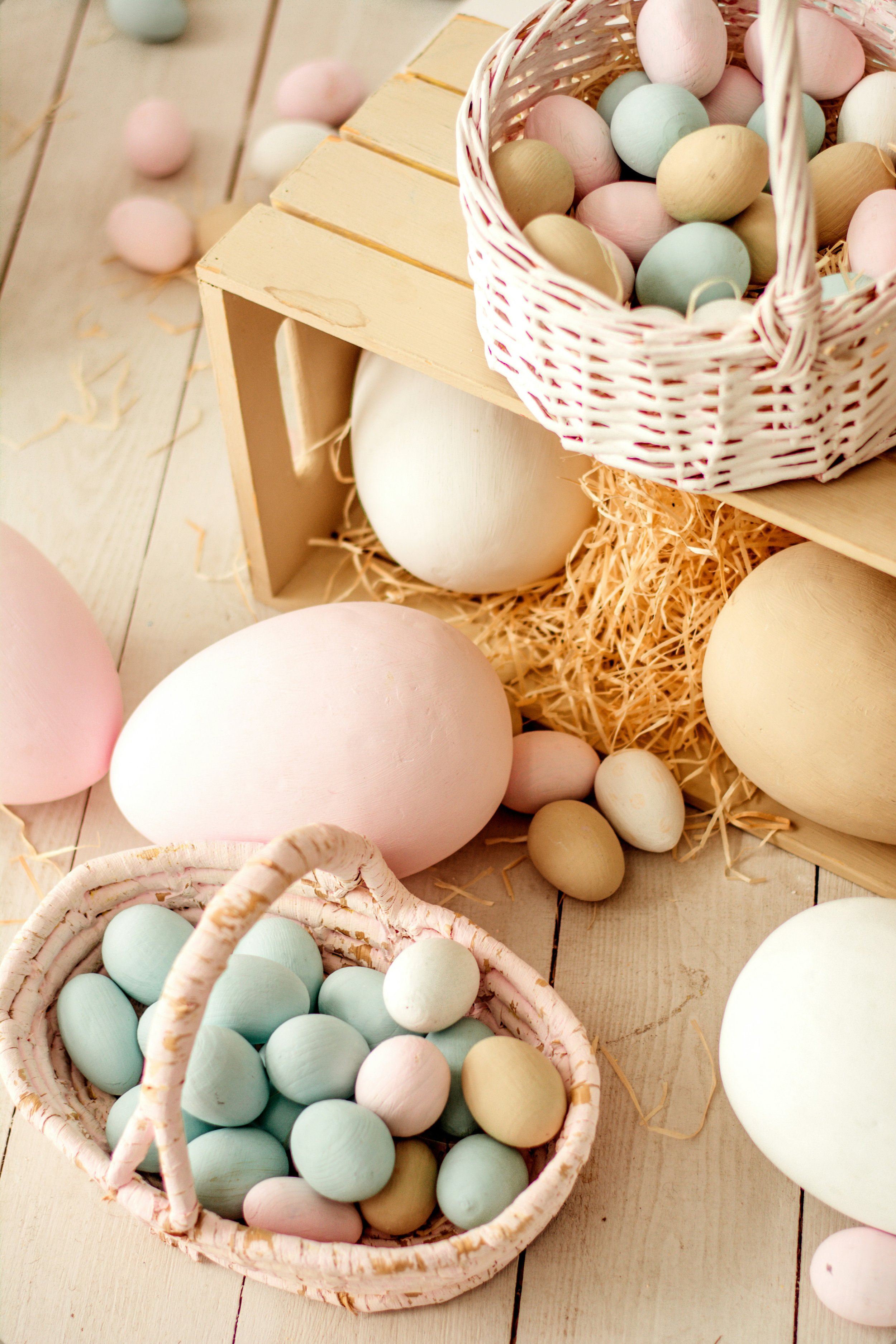5 tips on celebrating Easter more sustainably
Let's hop into Easter celebrations whilst saving the planet, one bunny hop at a time! In today's Tuesday Tips, we're giving you some delightful tips on how to make your Easter holiday more sustainable without missing out on the fun. We are here to help you navigate the chocolate-filled maze of sustainable choices! From creative, sustainable Easter decorations to ethical chocolate, we'll show you how to celebrate this special holiday responsibly.
Wishing you CHOMPions an egg-ceptionally sustainable Easter!
1. Host sustainable Easter activities
Sustainable egg hunt - rather than using plastic or edible eggs for the annual egg hunt, opt for wooden toys or eggs instead. This way, you are reducing your plastic and food waste. Has it ever happened to you that even a few days (or sometimes weeks…) after Easter, Easter eggs plotted around the house still appear out of nowhere? Avoid wasting the eggs by using non-perishable ones that are wooden. For example, check out this Etsy seller that offers plain wooden eggs that you can even decorate yourself!
Host egg-inspired baking or cooking activities - here are some egg-cellent recipes to give you some inspiration:
Orange custard tart
Brown butter cake
Vegetarian quiche
Egg casseroleDIY your Easter decorations - let your creativity shine! Why not paint or make your own Easter eggs and other types of Easter decorations? You can use recycled/recyclable materials such as cardboards or toilet rolls, and you can even try dyeing your eggs using natural dyes such as beetroot, tea, turmeric, or onion skins!
2. Buy sustainable chocolate
Let's be honest, it's hard not to have chocolate over Easter. And because it's so quintessential to this holiday, why not shop for ones that are ethically sourced (read the link to find out more about ethical consumption), have minimal packaging, or you can even opt for buying ones “loosely” in bulk without any packaging at all (for example Slowood HK has a whole selection of chocolate bites that are not individually wrapped).
3. Reuse your Easter decorations
As well as making your DIY Easter decorations, opt for reusing the ones from the year before! This saves you from buying new Easter decorations; not only is this more eco-friendly, but you are saving money as well. This includes Easter baskets - you can create your own or use baskets you already have.
4. Recycle and discard Easter waste responsibly
Here are some crazy statistics from your chocolate Easter eggs that you might not know:
a) Roughly 160 tonnes of foil packaging are used in Easter eggs to wrap the chocolate.
b) The average 200g Easter egg uses 54 grams of card and 2 grams of foil in packaging. That means a lot of waste CAN be recycled. Make sure to check out our Instagram and Facebook for the full rundown of Easter waste figures. To sum up on discarding Easter waste responsibly:
Did you know that the foil around your chocolate eggs are 100% recyclable? Watch this Youtube video to learn how to.
Don't forget to recycle the Easter egg packaging such as the cardboards they come in.
If you are buying flowers to decorate your house or receiving them as a present, compost them or discard them in your garden to biodegrade naturally.
5. Resist Easter consumerism habits
We know this one seems a little obvious but we also understand how easy it is to get tempted by cute Easter inspired decorations, toys or chocolates (and yes we admit, they are so adorable and we are guilty of that). The idea here is not to stop you from purchasing what your heart desires, rather to be more responsible and conscious when buying products. Be mindful of where they come from and what they are made of. So let's try to hone in the meaning of Easter which is to mark a new beginning. A fresh spring start to being more eco-conscious and green in as many ways as possible!



